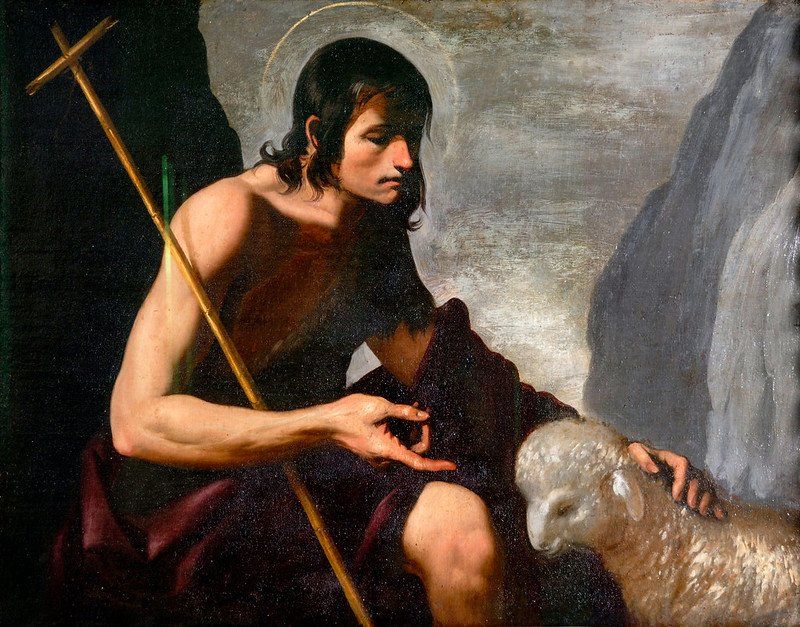Message of Abbot Paul - Sunday 12th December

Message from Fr Paul for Sunday, 12th December 2021
I have always been fascinated by the different ways in which the four Evangelists recount the Good News of Jesus Christ. The fact that at no time has the Church ever tried to hammer out the differences between the four Gospels is proof to me of the truth in all four and of how, together, they give us a full and complete picture of the life and teaching of Jesus of Nazareth, Son of God and son of Mary, the Messiah sent by the Father to be our Lord and Saviour. The same goes for other important personages who are part of the Jesus story, especially John the Baptist, on whom the Mass readings today focus. We read from Luke, (Lk 3: 10-18), who has a great deal to tell us about John. Let’s see what Luke has to say. The passage is made up of two paragraphs, the first giving us details of John’s own ministry and of the people who came to him for baptism, the second concentrating on John’s testimony of the one who is to come, yet Jesus is not mentioned by name.
“When all the people asked John, ‘What must we do?’ he answered, ‘If anyone has two tunics, he must share with the man who has none, and the one with something to eat must do the same.’ There were tax collectors too who came for baptism, and these said to him, ‘Master, what must we do?’ He said to them, ‘Exact no more than your rate.’ Some soldiers asked him in their turn, ‘What about us? What must we do?’ He said to them, ‘No intimidation! No extortion! Be content with your pay!’”
Many people, it would seem, come to John for baptism, repenting of their sins. They also ask him for advice on how they are to live their lives according to God’s will. His answers are clear and practical and can be summed up in the words, charity, justice and integrity. We see that his was no mere symbolic ritual, but a real conversion and change of heart. People wanted to obey God’s will and live according to his Law. It’s interesting to note that among these were tax collectors and soldiers, two categories of the population for whom Jesus would also dedicate a substantial part of his ministry.
Then John speaks of the difference between himself and that mysterious someone who is to come. He needs to do this as many were coming round to the view that John was the Messiah, the Christ, so he has to make clear that he is not.
“A feeling of expectancy had grown among the people, who were beginning to think that John might be the Christ, so John declared before them all, ‘I baptise you with water, but someone is coming, someone who is more powerful than I am, and I am not fit to undo the strap of his sandals; he will baptise you with the Holy Spirit and fire. His winnowing-fan is in his hand to clear his threshing-floor and to gather the wheat into his barn; but the chaff he will burn in a fire that will never go out.’ As well as this, there were many other things he said to exhort the people and to announce the Good News to them.”
John compares what he is doing with what the Christ will do. His is simply a baptism of water, whereas the Christ will baptise with the Holy Spirit and with fire. In a spirit of humility, John declares himself to be unfit even to undo the sandal strap of the one who is coming. In other words, he is not worthy even to be his servant. Baptism in the Holy Spirit will convey God’s own life to those receiving it, the fire burning away all that is sinful and unworthy of a child of God, recreated in his image through the presence of Christ and the Spirit in their hearts and souls. That is the Baptism we have received. Let us never forget the immense dignity that God has given us to be called his children, for that is what we are.









